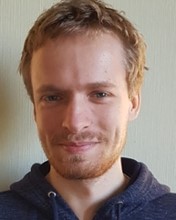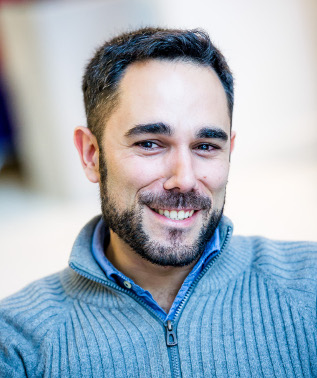Summary
Benchmarking plays a critical role in the design and development of optimization algorithms. The way in which benchmark suites are set up thus influences the set of algorithms recommended to practitioners and biases the goals of algorithm designers. The focus of this workshop is on benchmarking algorithms on problems with box constraints (i.e. upper and lower limits on the input variables defining the domain of the search space). In practical applications, evaluating points outside of the domain is often impossible, or not sensible, and as such, should be avoided. However, in benchmarking as practiced today, problems are well-defined even outside of the stated parameter ranges, which translates to the algorithms being able to safely ignore these ranges and operate on infeasible solutions.
Setting up box constraints represents the simplest type of constraints and gives rise to the so-called box-constrained problems. In this workshop, we will discuss in more detail how the presence of box-constraints impacts the performance of optimization algorithms and provide participants with a new variant of the BBOB suite called SBOX-COST for continuous, single-objective, noiseless optimization.
Important Dates
| Submission opening | February 13, 2023 |
| Submission deadline | April 17 (AoE), 2023 |
| Notification to authors | May 3, 2023 |
| Camera-ready papers | May 10, 2023 |
| Author’s mandatory registration | May 10, 2023 |
Call for papers
Paper submission
Two types of submissions will be accepted for this workshop:
-
Short papers (up to 4 pages) reporting results of new or existing algorithms on the provided BBOB SBOX-COST suite of (box-constrained) test functions. Please refer to the following link for the data and instructions on how to use it: https://github.com/sbox-cost/Examples You can also find there a LaTeX template (https://github.com/sbox-cost/Examples/tree/main/SBOX-COST-template) and its PDF.
-
Longer papers (up to 8 pages) discussing aspects related to the presence of box-constraints.
Topics of interest (but not limited to) include:
- New insights of existing algorithms when applied to box-constrained problems
- Performance analysis and visualization of algorithms on the provided BBOB SBOX-COST suite of test functions
- Algorithm design for box-constrained problems
- Metrics for benchmarking algorithm performance on and complexity of box-constrained problems
- Other aspects of box-constrained benchmarking optimization algorithms
Instructions on submission
For paper submission instructions and templates, please see the GECCO submission instructions: https://gecco-2023.sigevo.org/Paper-Submission-Instructions
(see experimental setup), a doi of the zenodo submission with data and resproducibility steps
You can find an example paper here
Instructions for generating plots with IOH and COCO
See https://github.com/sbox-cost/Examples
Examples of data
See Zenodo repository: https://doi.org/10.5281/zenodo.7649077
Organizers
 |
Anna Kononova is an Assistant Professor at the Leiden Institute of Advanced Computer Science, Leiden University, The Netherlands. She received her MSc degree in Applied Mathematics from Yaroslavl State University (Russia) in 2004 and PhD degree in Computer Science from University of Leeds (UK) in 2010. After the total of 5 years of postdoctoral experiences at Technical University Eindhoven (The Netherlands) and Heriot-Watt University (Edinburgh, UK), Anna has spent a number of years working as a mathematician in industry. Her current research interests include analysis of optimisation algorithms and machine learning. |
 |
Olaf Mersmann is a Professor for Data Science at TH Köln - University of Applied Sciences. He received his BSc, MSc and PhD in Statistics from TU Dortmund. His research interests include using statistical and machine learning methods on large benchmark databases to gain insight into the structure of the algorithm choice problem. |
 |
Diederick Vermetten Diederick Vermetten is a PhD student at LIACS. He is part of the core development team of IOHprofiler, with a focus on the IOHanalyzer. His research interests include benchmarking of optimization heuristics, dynamic algorithm selection and configuration as well as hyperparameter optimization. |
 |
Manuel López-Ibáñez is a senior lecturer in the Decision and Cognitive Sciences Research Centre at the Alliance Manchester Business School, University of Manchester, UK. Between 2020 and 2022, he was also a “Beatriz Galindo” Senior Distinguished Researcher at the University of Málaga, Spain. He received the M.S. degree in computer science from the University of Granada, Granada, Spain, in 2004, and the Ph.D. degree from Edinburgh Napier University, U.K., in 2009. He has published 32 journal papers, 9 book chapters and 54 papers in peer-reviewed proceedings of international conferences on diverse areas such as evolutionary algorithms, multi-objective optimization, and various combinatorial optimization problems. His current research interests are experimental analysis and the automatic configuration and design of stochastic optimization algorithms, for single and multi-objective problems. He is the lead developer and current maintainer of the irace software package for automatic algorithm configuration (http://iridia.ulb.ac.be/irace) and the EAF package for the analysis of multi-objective optimizers (https://mlopez-ibanez.github.io/eaf/). |
 |
Richard Allmendinger is Dr Richard Allmendinger is a Professor of Applied AI at the Alliance Manchester Business School, The University of Manchester, and Fellow of The Alan Turing Institute, and an Advisor to River Capital’s AI fund (the first dedicate AI fund in the North of UK). Richard has a background in Business Engineering (Diplom, Karlsruhe Institute of Technology, Germany + Royal Melbourne Institute of Technology, Australia), Computer Science (PhD, The University of Manchester, UK), and Biochemical Engineering (Research Associate, University College London, UK). Richard’s research interests are in the development and application of optimization, learning and analytics techniques to real-world problems arising in areas such as management, engineering, healthcare, sports, music, and forensics. Much of his research has been funded by UK funding bodies and industrial partners. Richard is a Member of the Editorial Board of several international journals, Vice-Chair of the IEEE CIS Bioinformatics and Bioengineering Technical Committee, Co-Founder of the IEEE CIS Task Force on Optimization Methods in Bioinformatics and Bioengineering, and contributes regularly to conference organisation and special issues as guest editors. |
| Youngmin Kim is a PhD student at Alliance Manchester Business School (AMBS), The University of Manchester. His research focuses on the development and application of benchmark routines and algorithms for safe optimization. Youngmin has an MSc degree in Statistics from the University of Glasgow, and an MSc degree in Business Analytics from AMBS. |
